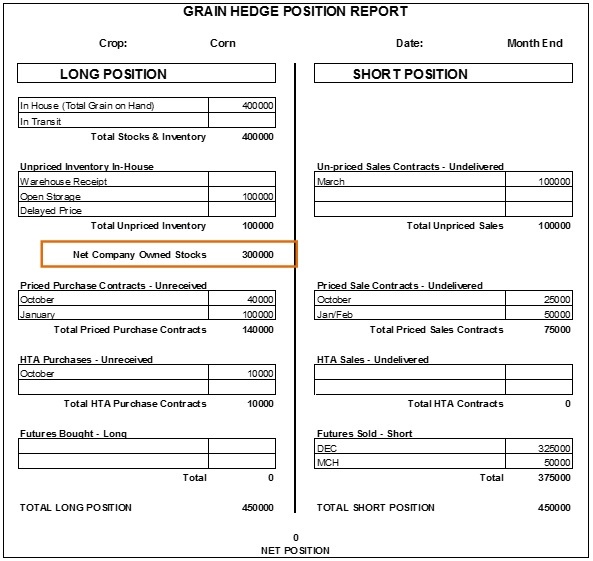Grain Elevator Financing Tip: Inventory Repurchase Agreements
Volatile prices mixed with a need to build working capital and equity pushed inventory repurchase agreements into the grain elevator financing and...

Forward contract financing has become an essential piece of the grain elevator financing package. The modern day elevator must be able to help producers capture high prices during any season and lock in profitable selling opportunities when the market is asking for grain. The total purchase and sale contracts will be broken down on the position report by delivery period and contract type. For multi-location grain companies the location will also be specified.

Typically, grain is purchased in comparatively small increments by the elevator and sold in larger volumes to end users to fill their needs. Purchase and sales contracts must be included in the total to get an accurate assessment of the elevator’s forward contract position. Each contract the elevator offers should be discussed by the financial team to ensure all parties understand them thoroughly. Confusing or one sided contracts may not be financed by lenders for fear of not being able to fully collect the receivable in the event of a default by the elevator.

Bankers are typically concerned about delivery risk and basis volatility when financing forward contracts. Elevators need to share their history with forward contracts early and confidently during the lending process. Typically, delivery challenges involve a small number of bushels relative to the overall forward contracted bushels, and are often settled by the producer before a court or arbitration hearing is necessary. The total value of the forward contracts is listed on the balance sheet and income statement and it will stay on the borrowing base and financial statement as a current asset or current liability until the grain is delivered.

The value of the contracts will flow through to the financial statements and the borrowing base.

While lenders are most concerned about setting advance rates to help finance forward contracts, the market may actually provide liquidity if the value of the contacts on the books are valued higher than the current contract values in the marketplace. Neither the elevator nor the bank wants to overfund a position so grain contract payables are taken off the borrowing base at 100% of their value.

Volatile prices mixed with a need to build working capital and equity pushed inventory repurchase agreements into the grain elevator financing and...

Where much is given, much is required and this is certainly true with collateral audits. The increased grain elevator financing requirements have...

Volatile prices and the difficulty accessing credit during peak financing periods opened the market to provide commodity futures swaps as a method of...